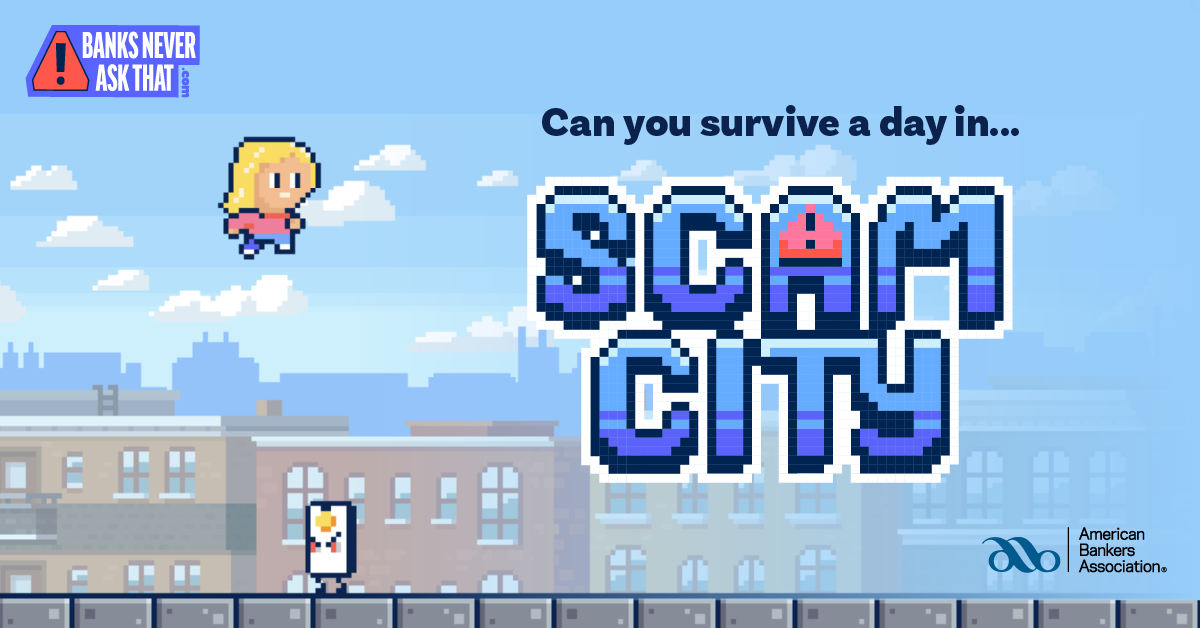Every day, thousands of people fall victim to fraudulent emails, texts, and calls from scammers pretending to be their bank. We want to change that. Premier Community Bank with the ABA, are working to raise awareness among our customers of best practices for phishing defense. Below are some helpful tips to educate and protect yourself from phishing scams.

Banks will never send you a text or email that asks you to click a suspicious link.

If you think an email, text, or call might be a scam, play it safe. Just hang up and call the number on the back of your card.

Fraudulent texts and emails often have typos. Real banks use spell check.

Got an email, text, or phone call that claims to be from your bank, but is asking for your PIN or password? #BanksNeverAskThat. Just hang up and call the number on the back of your card.

Scam emails, texts, and calls may pressure or even threaten you to respond. #BanksNeverAskThat. Just ignore them, and call your bank directly.

Banks will never send you a text or email that asks you to click a suspicious link.

If you think an email, text, or call might be a scam, play it safe. Just hang up and call the number on the back of your card.

Fraudulent texts and emails often have typos. Real banks use spell check.

Got an email, text, or phone call that claims to be from your bank, but is asking for your PIN or password? #BanksNeverAskThat. Just hang up and call the number on the back of your card.

Scam emails, texts, and calls may pressure or even threaten you to respond. #BanksNeverAskThat. Just ignore them, and call your bank directly.
Stay Safe: Your Ultimate Guide to Fraud Prevention and Phishing Protection
Check out the links below to empower yourself with essential tips and resources to safeguard your personal information and stay one step ahead of cybercriminals.
Click below for more tips and information on Fraud Prevention Resources at Premier Community Bank.
learn more here
Click below to check out our Fraud Prevention blogs to build your knowledge and protect yourself from Fraud.
learn more here
Test your phishing knowledge by playing the game Scam City- will you escape with your cash intact?
play scam city here






